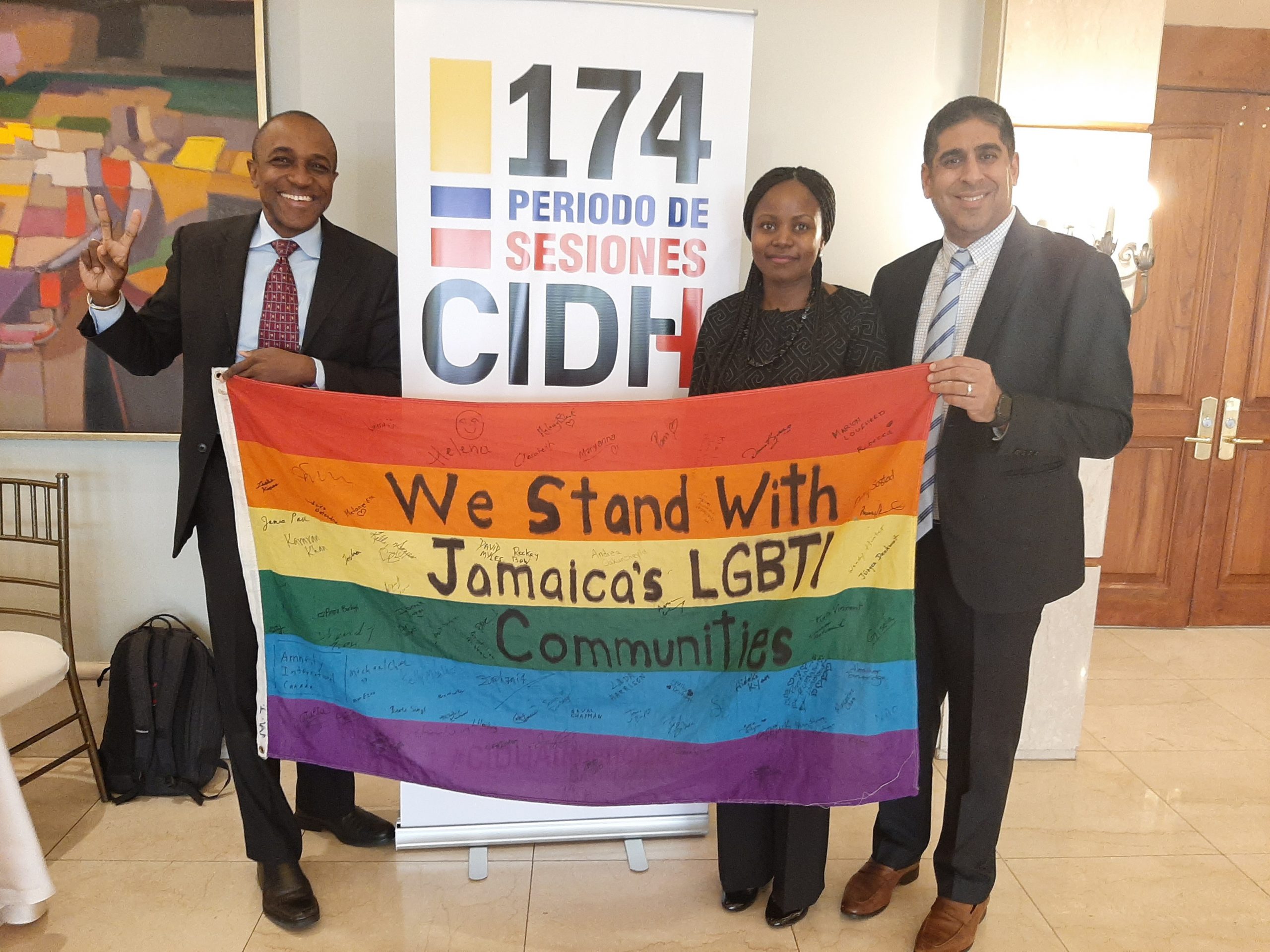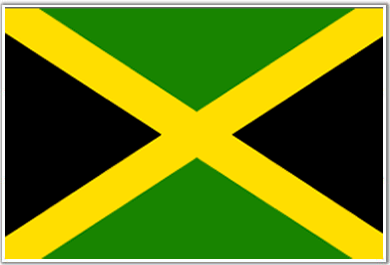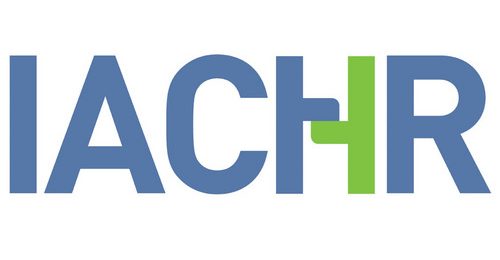Inter-American commission blasts Jamaica’s anti-gay laws
Colin Stewart is a 45-year journalism veteran living in Southern…
“A resounding victory for social justice and a necessary repudiation of homophobia.” That’s how one human rights activist described a report from the Inter-American Commission on Human Rights that censures Jamaica for violating the rights of its LGBTI citizens.

The international advocacy organization AIDS-Free World welcomed the report with this announcement:
DECEMBER 1, 2020: The Inter-American Commission on Human Rights (IACHR) has issued a scathing report declaring that Jamaica’s Offences Against the Person Act violates several of the individual rights protected by the American Convention on Human Rights, which Jamaica signed in 1977.

The soon-to-be-released IACHR report lambasts the Jamaican act for criminalizing same-sex intercourse between males (punishable by 10 years in prison with hard labor) as well as “any act of gross indecency”—for example, a kiss—by a male with another male (punishable by two years in prison).
“This report is a resounding victory for social justice and a necessary repudiation of homophobia,” said Sarah Bosha, Legal and Research Advisor, HIV and Human Rights at AIDS-Free World. “The IACHR’s findings and recommendations can lead to fundamental changes in public policy throughout the Caribbean.”
“The 1864 law, a relic of colonialism, is instrumental in the spread of the HIV epidemic in the Caribbean region,” Bosha said. “It drives LGBTI people underground and away from essential HIV testing and treatment services. Now it is up to Jamaica to repeal the law.”
The law’s impact upon Jamaican society is pernicious and widespread. Once described by Time magazine as the “most homophobic place on earth,” Jamaica continues to be marred by a virulent strain of anti-LGBTI bigotry. Physical and sexual violence are ever-present dangers for the country’s LGBTI people. Many feel they have no choice but to avoid both general health services and specific services related to HIV and AIDS.
During an IACHR hearing in November 2019, Bosha testified that the law “legitimizes and permits homophobic attitudes by health care workers.”
The consequences of that legally sanctioned discrimination are predictable. The rate of HIV infection in Jamaica among men who have sex with men is 29.8%, the highest in the Caribbean region. The HIV prevalence among gay and bisexual adolescent boys is estimated to be 14%, and HIV prevalence in transgender adolescents is estimated to be 51%. Such numbers constitute an entirely avoidable public health crisis on the island.
The IACHR found that, along with violating Jamaicans’ basic right to health, the Offences Against the Person Act violates the right to humane treatment; the right to privacy; the right to freedom of movement and residence; the right to equal protection; and the right to judicial protection.
The report concludes by issuing a number of recommendations. The IACHR asks Jamaica to repeal sections 76, 77, and 79 of the Offences Against the Person Act and “adopt the necessary measures to ensure the effective access to health services to LGBTI persons without discrimination.”

Jamaica is under no legal obligation to follow the IACHR recommendations. Nonetheless, the IACHR report will carry tremendous weight in the international community and bring necessary pressure on Jamaican lawmakers to act.
The recommendations are hard won, the result of nearly a decade of determined work by advocates and brave petitioners. In August 2011, AIDS-Free World filed a petition before the IACHR on behalf of two LGBTI Jamaicans, whose names had to be withheld for fear of violent recrimination. The petition argued that the discriminatory sections of the Offences Against the Person Act violated several rights of petitioners “T.B.” and “S.H” and created adverse conditions for the LGBTI population as a whole in Jamaica.
AIDS-Free World worked with Thompson Hine LLP, a private legal firm, which provided pro bono legal services over the course of the past nine years. The HIV Legal Network based in Toronto played a key role, offering legal support and forming part of the legal team that presented oral evidence on the merits of the petition before the IACHR.
T.B. and S.H told the IACHR that they had “suffered a series of restrictions to access health which derive from the context of discrimination against LGBTI persons in Jamaica and the validity of the Offences Against the Person Act,” according to the report’s summary.
In one example, T.B. described visiting a public health facility for an HIV test.
“The nurse handed me a questionnaire to complete,” T.B. said in a 2011 declaration. “Among other things it had questions about my previous sexual partners. I was afraid to fill it out truthfully because I had only ever had sex with men, which is a crime in Jamaica. Completing the questionnaire would be admitting that I broke the law and could spend up to 10 years in prison. I also did not want to expose myself to further ridicule by admitting that I was gay. So, when the nurse was not looking, I quickly gathered my belongings and left.”
The IACHR report is a victory not only for the petitioners but for all LGBTI and HIV activists in Jamaica. Many are members of intrepid organizations—the Jamaica Forum for Lesbians, All Sexuals, and Gays (J-FLAG), Jamaica AIDS Support for Life (JASL), and others—that continue to fight for equal rights despite enormous risks.
“This report by the IACHR is vindication of what Jamaican LGBTI and HIV activists have been saying for decades: the British colonially imposed anti-sodomy law violates a raft of human rights obligations that modern Jamaica is bound to uphold,” said Maurice Tomlinson, a prominent Jamaican human rights lawyer and consultant at the HIV Legal Network. “It is time for the government to act and end this discriminatory and sometimes deadly statute. And act now. Before more LGBTI people on the island fall victim to the stigma and violence for which this colonial-era edict gives license.”
It was a victory nine years in the making.
“No matter how long it takes, AIDS-Free World is dedicated to achieving the goals of justice,” said Bosha. “We are proud to stand with the petitioners—and all LGBTI Jamaicans—as they heroically force Jamaica to reckon with its legacy of hate. May the future be free from the cruelties of the past.”
Related article:





It’s not hate . Y’all are the ones who hate straight people and want to force on heterosexual people homosexual standards. It’s appalling and disgraceful. Y’all should be ashamed to consider yourselves apart of humanity.
Excuse me. Who wants to imprison whom? You’re saying it’s hateful to want to avoid prison for whom you love? According to you, that’s “forcing homosexual standards” on straight people?
— Colin Stewart, editor of this blog
zaid, why are you even here.